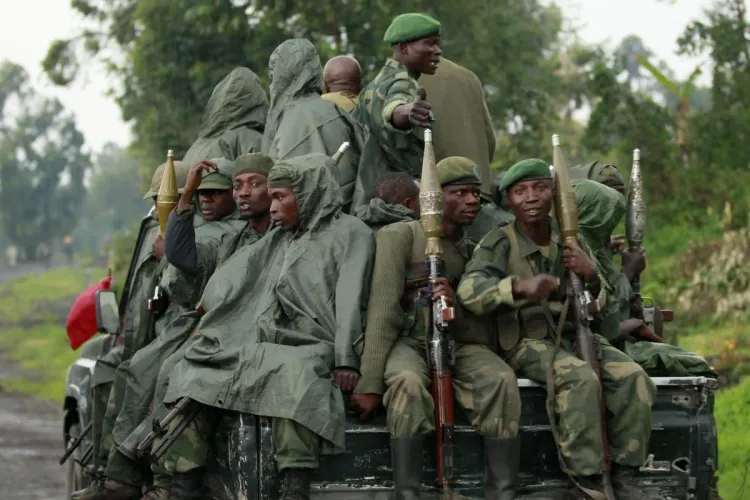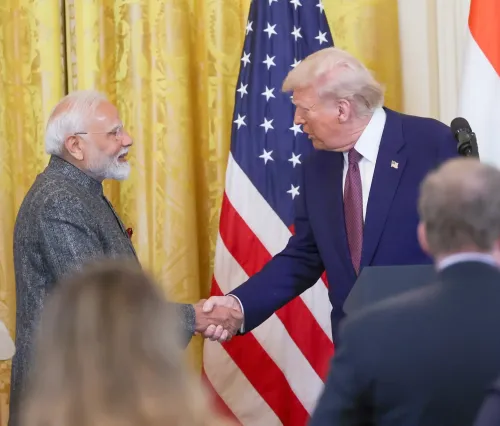UN Chief Critiques Rebel Movements in Congo

Synopsis
Key Takeaways
- Antonio Guterres condemns M23's renewed hostilities.
- Goma, a key city, is under threat from M23 advances.
- Over 237,000 people displaced in 2025 alone.
- The humanitarian situation is worsening with intensifying clashes.
- Peace talks were abruptly canceled due to negotiation deadlock.
Kinshasa, Jan 24 (NationPress) The UN Secretary-General Antonio Guterres has voiced deep concern regarding the resurgence of hostilities by the March 23 Movement (M23) rebellion in the eastern Democratic Republic of the Congo (DRC), placing a significant regional city at risk.
Guterres has denounced the renewed offensive initiated by the M23 at the start of the year, which has spread into the provinces of North Kivu and South Kivu. This includes the recent capture of Sake, thereby escalating the threat to Goma, the capital of North Kivu and a vital urban center, as stated by his spokesperson, Stephane Dujarric.
Sake, located approximately 20 kilometers from Goma, is viewed as the last line of defense for Goma, which the M23 previously occupied in late 2012.
With the offensive inflicting severe damage on the civilian populace and raising the risk of a wider regional conflict, the Secretary-General has urged the M23 to immediately halt its assaults, withdraw from all occupied regions, and comply with the ceasefire agreement enacted last August.
The M23 comprises former rebels from the National Congress for the Defence of the People. Its designation stems from the March 23, 2009, accord it reached with the DRC government, according to the Xinhua news agency.
In December 2013, the M23 entered into a peace deal with the government, agreeing to disband its fighters and evolve into a political entity. Nonetheless, M23 leaders have claimed that the government has not upheld that agreement, leading to their resurgence in late 2021.
Per the United Nations High Commissioner for Refugees (UNHCR), around 237,000 individuals have been displaced since the start of 2025 in eastern DRC, which is one of the globe's largest regions housing internally displaced persons.
Rising confrontations between armed factions and the DRC army in North and South Kivu provinces, already sheltering 4.6 million internally displaced individuals, are exacerbating one of the world's most severe yet underreported humanitarian emergencies, as stated by UNHCR spokesperson Eujin Byun last week.
During the period from January 1 to 6, fierce clashes in the Masisi and Lubero territories of North Kivu Province compelled approximately 150,000 people to evacuate their homes, while 84,000 individuals were displaced in the Fizi territory of South Kivu. The UN agency emphasized that civilians in both areas are facing indiscriminate bombings.
A peace summit intended to tackle the conflicts in the DRC was abruptly canceled last month due to a stalemate in negotiations.









